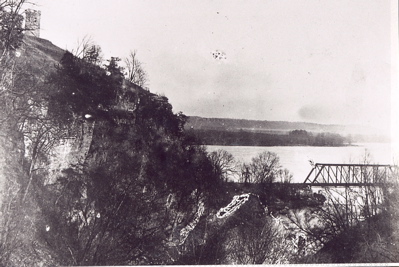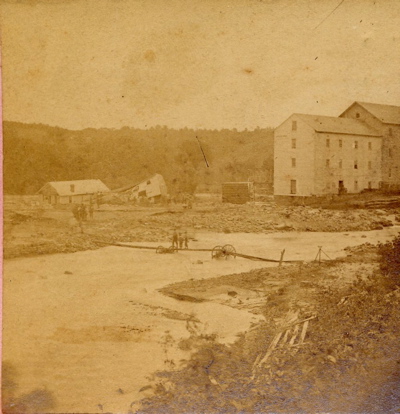Encyclopedia Dubuque
"Encyclopedia Dubuque is the online authority for all things Dubuque, written by the people who know the city best.”
Marshall Cohen—researcher and producer, CNN
Affiliated with the Local History Network of the State Historical Society of Iowa, and the Iowa Museum Association.
CATFISH CREEK
CATFISH CREEK. A minor tributary of the MISSISSIPPI RIVER. Catfish Creek rises west and southwest of Dubuque, Iowa. The Middle Fork flows under and then parallel to U.S. Highway 20. The remaining forks of the creek are all south of Highway 52. Swiss Valley Park, maintained by Dubuque County, is in the main fork. The section of the creek in Swiss Valley is a designated trout stream. The portion running through the Mines of Spain State Recreation Area has increased in popularity for “quiet water activities” such as canoeing, kayaking, water-based eco-tours and wildlife watching.
The North Fork of the creek has been proposed for a trail/park. Landowners and residents working with the Upper Catfish Creek Watershed Project have begun conservation practices and other changes to improve their farming operations, their land, their creek. In 2007 a $7,500 grant was awarded by the Iowa Department of Natural Resources to help the Dubuque County Conservation Board control storm water at the Swiss Valley Nature Center. The grant money helped install a pervious parking area and a permeable grass paver walkway to reduce storm water runoff entering the creek.
In the late 1700s, the MESQUAKIE located a village near the mouth of Catfish Creek and mined LEAD in the area. In 1788 they allowed Julien DUBUQUE to live along the stream and operate the mines. Near the mouth of the stream, his settlement included a smelter and blacksmith shop.
On the evening of June 4, 1876, a downpour of rain caused Catfish Creek to surge out of its banks to a depth of perhaps twenty-feet and a width of hundreds of feet. The village of ROCKDALE suffered the loss of two stores, several houses, a hotel, saloon, post office, and blacksmith shop. Reports stated that forty-two people died with survivors found in tree tops.




